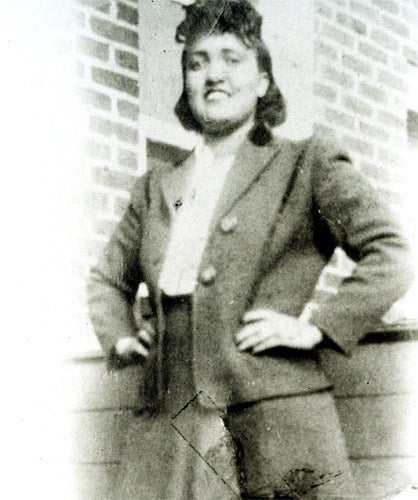Henrietta Lacks: Black woman’s heirs sue biotech firm for ‘stealing’ her cells in act of ‘genetic racism’
Heirs of Henrietta Lacks say pharmaceutical company used her cervical cells without her consent

The estate of a Black woman whose cervical cells were taken from her seventy years ago without her knowledge or consent, sued a pharmaceutical company alleging that it profited from her stolen tissue, in a case of “genetic racism.”
In 1951, then 31-year-old Henrietta Lacks was undergoing treatment at the Johns Hopkins University for cervical cancer when white doctors allegedly harvested her tissues in a procedure that rendered her infertile.
Lacks died later that year of cancer but her cells, termed the HeLa line, became the first human cells to be successfully cloned.
Since then HeLa line cells have been used continuously for research that has touched every realm of modern medicine from polio vaccines, to effects of radiation on human cells, gene mapping and even Covid-19 vaccines.
“In the last several years Thermo Fisher Scientific has made staggering profits in tens of millions of dollars by using the HeLa cell line-all while Ms Lacks’ Estate and family haven’t seen a dime of it," says the lawsuit.
The Lacks family is being represented by civil rights lawyer Ben Crump who also represented the families of George Floyd, Michael Brown after their deaths.
In a tweet on Monday, Mr Crump said the suit demands “genetic justice” for Lacks.
"It is outrageous that this company would think that they have intellectual rights property to their grandmother’s cells. Why is it that they have intellectual rights to her cells and can benefit billions of dollars when her family, her flesh and blood, her Black children, get nothing," Mr Crump said on Monday at a news conference.
“Put simply, because it made the conscious choice to profit from the assault of Henrietta Lacks, Thermo Fisher Scientific’s ill-gotten gains rightfully belong to Ms Lacks’ estate," says the lawsuit.
The Lacks family has alleged in their lawsuit that Thermo Fisher’s taking of her cells without her consent “is considered part of a conspiracy to harvest tissue for research from Black women without their knowledge of consent in racially segregated wards throughout the 1950s.”
While Johns Hopkins has acknowledged that the events were a lapse in bioethical standards, they have also maintained that, “there was no established practice for informing or obtaining consent from cell or tissue donors.”
Lacks’ estate is asking the court to order the biotech company to "disgorge the full amount of its net profits obtained by commercialising the HeLa cell line to the Estate of Henrietta Lacks."
The lawsuit also alleges that the Thermo Fisher is selling multiple products across the world using her cells and is asking for intellectual property rights to these products.
“Recoupment of their ill-gotten gains, which rightfully belong to Ms Lack’s estate, is just the first step toward obtaining justice for Lacks’ and her descendants,” the lawsuit says.
The suit also wants Thermo Fisher Scientific to permanently halt its use of HeLa cells without the estate’s permission.
The Independent has reached out to Thermo Fisher Scientific for a comment.
Lacks’ story was chronicled in the 2010 best-selling book and the 2017 film both titled “The Immortal Life of Henrietta Lacks."
Join our commenting forum
Join thought-provoking conversations, follow other Independent readers and see their replies
Comments
Bookmark popover
Removed from bookmarks